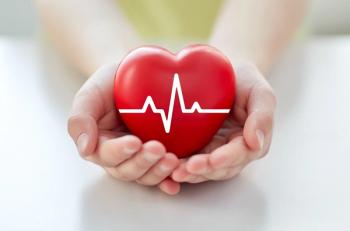
The connection between liver and heart health, and the importance of phospholipids: 2023 SupplySide West report
At this year’s SupplySide West, Nutritional Outlook spoke with Aker BioMarine’s chief scientist Nils Hoem about the connection between liver health and heart health, and how krill oil fits into this relationship.
At this year’s SupplySide West, Nutritional Outlook spoke with Aker BioMarine’s chief scientist Nils Hoem about the connection between liver health and heart health, and how krill oil fits into this relationship. The key to this connection is lipids. It is well understood that high levels of cholesterol, specifically low-density lipoprotein (LDL), can lead to a higher risk of heart disease and stroke, building up in the walls of your blood vessels. By contrast, so-called good cholesterol, high-density lipoprotein (HDL), absorbs cholesterol in the blood and carries it back to the liver where it is flushed from the body.1
“It's the liver that is taking care of the packaging of the lipid particles,” says Hoem. “The liver is also particular in that it stores fat in its own cells in what are called hepatocytes. Every other storage of fat happens within specialized cells called adipocytes, so the liver is really a factory where lipids are taken care of and where the lipids that it sends out to the rest of the body are taken care of and [ensures] the lipid particles have the right composition.”
An unhealthy liver can negatively impact cardiovascular health. Non-alcoholic fatty liver disease, which is a buildup of too much fat in the liver common in overweight or obese people, affects about 25% of the world’s population, and about 100 million people in the U.S.2 Hoem explains that non-alcoholic fatty liver disease significantly increases one’s risk of developing metabolic syndrome, which is a cluster of conditions such as high blood pressures, high blood sugar, excess body fat, and high cholesterol or triglyceride levels that increase your risk of heart disease, stroke and type 2 diabetes.3
Changing the course of one’s non-alcoholic fatty liver disease can be done through dietary means if caught early enough, and one way to do so, says Hoem, is to increase one’s intake of phospholipids and long-chain omega-3 fatty acids, namely EPA and DHA. Krill oil is the phospholipid form of EPA and DHA, that is also rich in phosphatidylcholine, which is a source of choline found naturally in the body.
“Choline has a direct effect on how much lipids are stored within the adipocytes,” says Hoem. “The body will have opportunities for storing fat either in the liver or out in the adipocytes, so there needs to be a balance.” Poor levels of choline in the diet can increase one’s risk of developing non-alcoholic fatty liver disease because phosphatidylcholine carries fat away from the liver, and not enough choline can lead to too much fat being stored in the liver.4
References
- LDL and HDL Cholesterol: “Bad” and “Good” Cholesterol. Centers for Disease Control and Prevention.May 16, 2023. Accessed November 14, 2023.
https://www.cdc.gov/cholesterol/ldl_hdl.htm#:~:text=High%20levels%20of%20LDL%20cholesterol,flushes%20it%20from%20the%20body - Nonalcoholic fatty liver disease. Mayo Clinic. October 6, 2023. Accessed November 14, 2023.
https://www.mayoclinic.org/diseases-conditions/nonalcoholic-fatty-liver-disease/symptoms-causes/syc-20354567 - Metabolic syndrome. Mayo Clinic. May 6, 2021. Accessed November 14, 2023.
https://www.mayoclinic.org/diseases-conditions/metabolic-syndrome/symptoms-causes/syc-20351916 - The Nutrition Source: Choline. Harvard T.H. Chan School of Public Health. March 2023. Accessed November 14, 2023.
https://www.hsph.harvard.edu/nutritionsource/choline/#:~:text=There%20is%20a%20link%20between,to%20store%20too%20much%20fat
Newsletter
From ingredient science to consumer trends, get the intel you need to stay competitive in the nutrition space—subscribe now to Nutritional Outlook.




